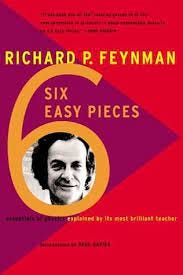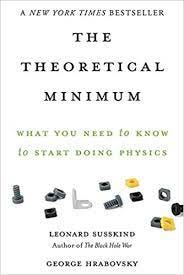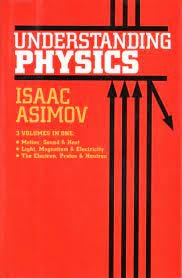Essential Physics Books for Accelerated Learning
Written on
Introduction to Key Physics Texts
While the title might seem a bit sensational, I assure you there are three essential physics books that will help you grasp the fundamentals of physics (up to classical mechanics) with ease. Additionally, I will mention some honorable mentions. I suggest these titles to anyone interested in learning physics but lacking the time, energy, or financial means for a formal physics course. These selections are based on the following criteria:
- Readability/Accessibility: How approachable is the language?
- Intuitiveness: Do they help the concepts click?
- Aesthetic Appeal: Are they visually engaging?
- Problem-Solving Opportunities: Do they offer practice problems or prepare you adequately for them?
These evaluations aim to highlight the "lightbulb" moments in learning. Keep in mind that while all these books score highly, I will compare them to each other for a more nuanced ranking.
Let’s explore the list!
Six Easy Pieces by Richard Feynman

Readability: Feynman's broader collection, "The Feynman Lectures," is well-known among physics learners. He presents these lectures in a way that’s very approachable, targeting those without an extensive background in physics. The conversational style makes it feel engaging. Score: 10/10
Intuitiveness: Feynman excels at relating complex concepts to everyday experiences, making them easier to understand. Score: 10/10
Aesthetic Appeal: Feynman believes in the inherent beauty of science, which makes the material inherently appealing, although he doesn’t embellish it excessively. Score: 8/10
Problems: This book isn’t a traditional textbook and includes very few practice problems. Pairing it with a standard physics textbook is advisable for comprehensive learning. Score: 3/10
Total Score: 31/40
The Theoretical Minimum by George Hrabovsky and Leonard Susskind

Readability: This series (three books in total) is written in a narrative style enriched with physics content. It’s slightly denser than Feynman’s work but still accessible. Score: 8/10
Intuitiveness: These books require readers to engage more actively with the material, which is essential for deeper understanding. Susskind is adept at discussing common phenomena in a profound way. Score: 8/10
Aesthetic Appeal: The focus is more on practical understanding than on elegant presentation, but the material is well-integrated. Score: 7/10
Problems: While there are some excellent practice problems, they are not extensively laid out in the text. Like Feynman’s work, this should be paired with a traditional textbook for effective practice. Score: 7/10
Total Score: 30/40
Understanding Physics by Isaac Asimov

Readability: Asimov excels at placing physics within a historical context, discussing experiments that led to discoveries. His style is somewhat wordier than the others. Score: 7/10
Intuitiveness: Asimov, known for his science fiction, presents concepts in a way that is often both comprehensive and intuitive, though some parts may not be as clear as Feynman’s work. Score: 6/10
Aesthetic Appeal: While not focused on beauty, Asimov’s humor and storytelling enhance the reading experience. Score: 5/10
Problems: This book doesn’t provide many problems, but it does an excellent job of preparing readers for problem-solving, making it more connected to other physical sciences. Score: 6/10
Total Score: 24/40
Honorable Mentions
A brief list of other noteworthy titles includes:
- "The Feynman Lectures" by Richard Feynman
- "Physics for Dummies" (for Dummies series)
- "Physics for Scientists and Engineers" by Knight (Textbook)
- "Physics" by Giancoli (Textbook)
Would you like me to review any other books? Have you read any of these? Please share your thoughts in the comments!
Legendary Physics Book for Self-Study - YouTube
This video explores a classic resource that is ideal for self-learners in physics, highlighting its strengths and unique insights.
5 Physics Books You Should Read (Popular Science + Textbook Recommendations)
In this video, discover five essential physics books that blend popular science and academic texts, perfect for anyone keen on enhancing their understanding of physics.